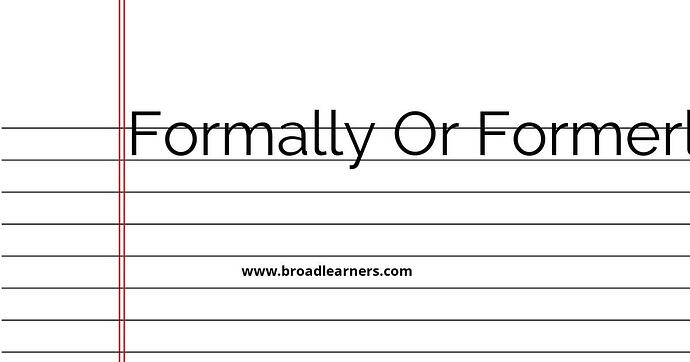'Formally' and 'formerly' are commonly confused words in English grammar. Understanding the difference between 'formally' and 'formerly' is important to use them correctly in written and spoken English.
'Formally' is an adverb that means in a formal or official manner. It is used to describe actions or situations that adhere to strict rules, protocols, or customs.
'Formerly' is also an adverb that means in the past or previously. It is used to indicate that something or someone used to be in a particular state, position, or condition.
Let's take a closer look at the meanings and usage of 'formally' and 'formerly'.
| 'Formally' | 'Formerly' |
|---|---|
| The word 'formally' is used to describe actions or situations that adhere to strict rules, protocols, or customs. | The word 'formerly' is used to indicate that something or someone used to be in a particular state, position, or condition. |
|
|
To remember the difference between 'formally' and 'formerly', it can be helpful to associate 'formally' with the word 'formal' and think of it as relating to official actions or situations. On the other hand, 'formerly' can be associated with the word 'former' and used to indicate something that was true in the past.
Here are some examples of correct usage:
- The meeting will be conducted formally. (in an official manner)
- I used to live in New York, but I formerly worked in London. (in the past)
- The company is now known as ABC Corporation, but it was formerly known as XYZ Corporation. (previously)
- She was formally introduced as the new CEO. (in a formal manner)
Remembering the correct usage of 'formally' and 'formerly' will improve your grammar and communication skills.
